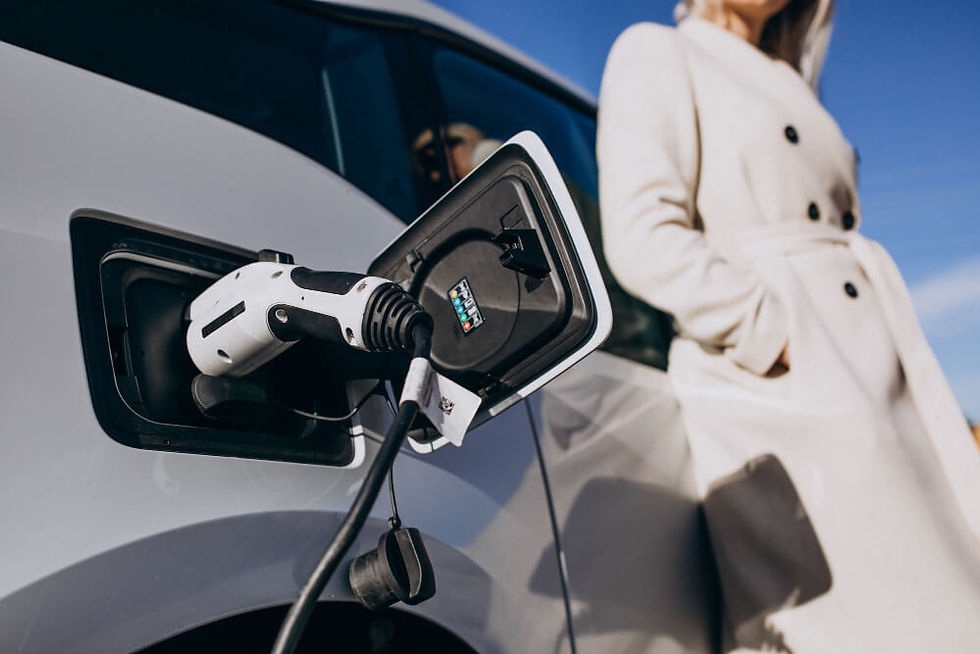What is a Megawatt Charging System for EV?
- Social Media
- Feb 17
- 3 min read
Imagine pulling into a charging station, plugging in your EV, and getting back on the road in minutes instead of hours. Sounds like a dream, right? That’s exactly where megawatt charging systems come in.
With EV adoption on the rise and more heavy-duty electric vehicles hitting the roads, the demand for ultra-fast EV charger installation is bigger than ever. Traditional charging infrastructure struggles to keep up, but megawatt chargers could change the game.
Let’s dive into why they’re so crucial for the future of EVs.
What Is Megawatt Charging?
A megawatt charging system (MCS) is exactly what it sounds like—an ultra-powerful charger delivering up to a megawatt (1,000 kW) of power. That’s 10 times more powerful than today’s fast chargers.
These chargers are designed primarily for large EVs like electric trucks, buses, and fleet vehicles, but as battery technology advances, they could become a standard for all EVs.
How Megawatt Charging Transforms the EV Landscape

1. Drastically Cuts Charging Time
Charging an EV at megawatt-level speeds reduces downtime significantly.
Long-haul electric trucks and fleet vehicles can stay on the road longer, improving efficiency.
2. Supports Larger EVs
Passenger EVs need faster charging, but heavy-duty electric trucks demand it.
Megawatt charging allows these large vehicles to charge quickly and keep up with high-mileage needs.
3. Enables Wider EV Adoption
One of the biggest barriers to EV adoption? Range anxiety.
With faster EV charger installation, drivers have confidence in quick top-ups, making EVs more practical for daily use.
4. Reduces Grid Pressure with Smart Charging
High-powered chargers might sound like a grid nightmare, but they can be optimized with smart load balancing.
By using battery storage and renewable energy, megawatt EV charger installation can be more sustainable.
Challenges of Megawatt Charging
Of course, implementing megawatt charging isn’t just plug-and-play. Here’s what needs to be tackled:
1. Infrastructure Upgrades
Most current charging stations aren’t built for such high power.
Widespread EV charger installation will require grid enhancements.
2. Battery Compatibility
Not all EVs can handle such high charging speeds yet.
Future EVs need batteries that can support megawatt-level charging safely.
3. Cost and Implementation
Setting up megawatt charging networks will take time and investment.
However, as technology advances, prices and installation barriers will likely decrease.
The Future of EV Charging: What's Next?
With the rise of megawatt EV charger installation, we’re looking at a future where charging an EV takes about as long as a regular gas stop. That’s a major shift!
As battery technology continues to improve, charging speeds will get even faster, making EVs more practical for everyone—from daily commuters to commercial fleet operators.
The key to success? A seamless rollout of charging infrastructure that makes megawatt charging widely available and accessible.
Final Thoughts
The future of EV charging is fast, powerful, and efficient—and megawatt charging systems are leading the way. While challenges remain, the push toward ultra-fast EV charger installation will make EVs even more practical for personal and commercial use.
With the right infrastructure, EV drivers will soon enjoy the convenience of rapid charging, making range anxiety a thing of the past.
Ready for the next generation of EV charging? The future is electric—and it’s charging faster than ever!
FAQs About Megawatt Charging
1. Can passenger EVs use megawatt chargers?
Currently, megawatt charging is primarily designed for heavy-duty EVs, but as battery technology advances, high-powered EV charger installation may become more common for passenger vehicles.
2. Will megawatt charging harm EV batteries?
Battery health depends on proper charging management. Future EVs will likely have battery technology designed to handle high-power charging safely without causing damage.
3. How does megawatt charging affect electricity grids?
Megawatt chargers require substantial power, but smart charging solutions, energy storage, and renewable integration can help minimize grid strain and make EV charger installation more efficient.







Comments